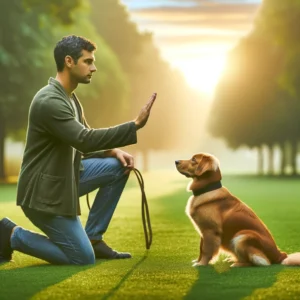Discover what really works in dog training.
Say goodbye to outdated myths!
Are you tired of sifting through endless dog training advice, unsure what to believe? It’s time to separate fact from fiction with our special feature: Dog Training Myths Debunked!
Myth #1: Dominance Must Be Established for Effective Training
Contrary to popular belief, the “alpha dog” concept is a myth when it comes to training. Modern science shows that dogs thrive on cooperation rather than competition. Building a relationship based on trust and mutual respect is far more effective than striving for dominance.
Myth #2: A Wagging Tail Means A Dog Is Happy
Tail wagging can indicate many emotions, including excitement, anxiety, or even aggression. It’s important to consider the entire body language of the dog, including their posture, ear position, and facial expression, to understand their emotions.
Myth #3: Old Dogs Can’t Learn New Tricks
Age is just a number, even for our canine companions! While puppies might pick up new skills more quickly, dogs of any age can learn new tricks and behaviors with the right approach and a bit of patience.
Myth #4: More Training Equals Better Results
Quality over quantity applies to dog training too! Short, focused training sessions are more effective than lengthy, overwhelming ones. It’s all about consistency and making learning enjoyable for your furry friend.
Myth #5: Dogs who are fearful or anxious just need to be exposed more to what scares them to get over it
While controlled exposure, known as desensitization, can help reduce fear, simply forcing a dog to face their fears without a structured plan can be traumatic and exacerbate the problem. It’s important to introduce fearful stimuli gradually and pair it with positive experiences.
Embrace Science-Backed Training Methods:
At My Dog Listens LLC, our experienced staff of dog trainers in VA we’re dedicated to promoting training methods supported by animal behavior science. Our Virginia dog training programs focus on balanced training techniques, encouraging a stronger bond between you and your dog that’s based on love and respect.
Together, Let’s Build a Happier, Healthier Relationship with Our Dogs.








